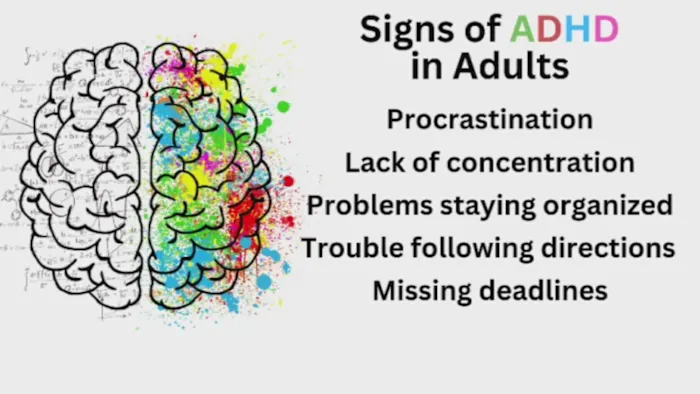
Attention-Deficit/Hyperactivity Disorder (ADHD) is a neurodevelopmental condition that affects millions of individuals worldwide. ADHD Awareness Month, observed every October, aims to educate the public about the disorder, reduce stigma, and promote understanding of its impact on individuals and society. ADHD is not limited to childhood; it persists into adulthood for many, influencing various aspects of life, including education, work, relationships, and mental health.
Who Does ADHD Affect?
ADHD does not discriminate, it affects people of all ages, genders, and backgrounds. While commonly diagnosed in children, many adults live with undiagnosed ADHD, unaware that their struggles with focus, impulsiveness, or organization may stem from this condition.
Children with ADHD often exhibit hyperactivity, difficulty maintaining attention, and impulsive behavior, which can lead to challenges in school and social settings. They may struggle with following instructions, staying seated, or completing tasks, which can be misinterpreted as disobedience or laziness. Early diagnosis and intervention are crucial to helping them develop coping strategies and succeed academically and socially.
Many adults with ADHD remain undiagnosed, having developed coping mechanisms that mask their symptoms. Common struggles include difficulty with time management, forgetfulness, impulsiveness in decision-making, and maintaining focus at work. These challenges can lead to poor job performance, financial instability, and strained relationships. Recognizing ADHD in adulthood can be life-changing, allowing individuals to seek appropriate treatment and support.
Families and Relationships
ADHD affects not only the individual but also their family members and partners. Parents of children with ADHD may experience frustration, exhaustion, and guilt. While romantic relationships with those who suffer from ADHD can suffer due to impulsive behaviors, forgetfulness, or emotional dysregulation. Education and therapy can help families develop strategies to support their loved ones while maintaining healthy relationships.
How ADHD Impacts Daily Life
ADHD influences multiple areas of life, often making routine activities more challenging. Understanding these challenges is key to fostering empathy and providing effective support.
Academic and Professional Struggles: Students with ADHD may have trouble staying organized, meeting deadlines, or retaining information. Without proper accommodations, they risk falling behind, leading to lower self-esteem and academic disengagement. In the workplace, adults with ADHD might struggle with time management, multitasking, and maintaining consistent productivity, potentially affecting career growth.
Mental Health Concerns: Managing ADHD can be difficult, but when left untreated, ADHD is frequently linked to anxiety, depression, and low self-esteem. The constant struggle to meet expectations, whether in school, work, or personal life, can lead to chronic stress and emotional exhaustion. Many individuals also experience rejection-sensitive dysphoria, an intense emotional reaction to perceived criticism or failure.
Social Interactions: Impulsivity and inattention can strain friendships and social interactions. Individuals with ADHD may interrupt conversations, forget commitments, or struggle with emotional regulation, leading to misunderstandings and conflict. Social skills training and therapy can help improve communication and relationship-building.
Financial and Lifestyle Challenges: Impulsive spending, difficulty managing bills, and forgetfulness about financial responsibilities are common among individuals with ADHD. These habits can lead to debt and financial instability. Structured financial planning and behavioral interventions can mitigate these issues.
Management and Treatments
ADHD is typically treated using a combination of behavioral therapies, lifestyle adjustments, and, in many cases, medication. The approach depends on the individual’s age, the severity of symptoms, and how the condition affects their daily life.
Medications, particularly stimulants like methylphenidate (Ritalin) and amphetamines (Adderall), are commonly prescribed and help increase the levels of certain neurotransmitters (dopamine and norepinephrine) in the brain, which can improve focus and reduce impulsivity. Non-stimulant medications, such as atomoxetine (Strattera), may also be used if stimulants aren’t effective or cause undesirable side effects.
Behavioral therapies, aims to teach individuals coping strategies, time-management skills, and how to control impulses. Parent training and classroom strategies may also be used to help children with ADHD succeed in their environment. Lifestyle changes, like maintaining a regular sleep schedule, engaging in physical activity, and reducing distractions, can significantly improve symptoms as well.
The goal of treatment is to improve functioning across various aspects of life, whether at home, in school, or in social situations, and treatments are often tailored to fit the individual’s unique needs.
Raising Awareness and Reducing Stigma
Misconceptions about ADHD persist, often portraying it as a lack of discipline for children or a result of poor parenting. Also promoting the false stereotype of laziness for adults. ADHD Awareness Month plays a vital role in dispelling myths, promoting accurate information, and encouraging empathy. Key ways to do that include:
Education: Providing resources to schools, workplaces, and healthcare providers to recognize, understand and support individuals with ADHD.
Community Support: Creating safe spaces for individuals with ADHD to share experiences and strategies. While community and social groups can help, it’s important to reach out to healthcare professionals who are trained in assisting you with diagnosing and managing you or your child’s ADHD.
By recognizing ADHD’s widespread effects on children, adults, families, and society, we can foster a more inclusive environment where individuals with ADHD thrive. Greater awareness leads to earlier interventions, better resources, and a reduction in the stigma that often surrounds this condition. Through education and empathy, we can create a world where those with ADHD are empowered to reach their full potential.



